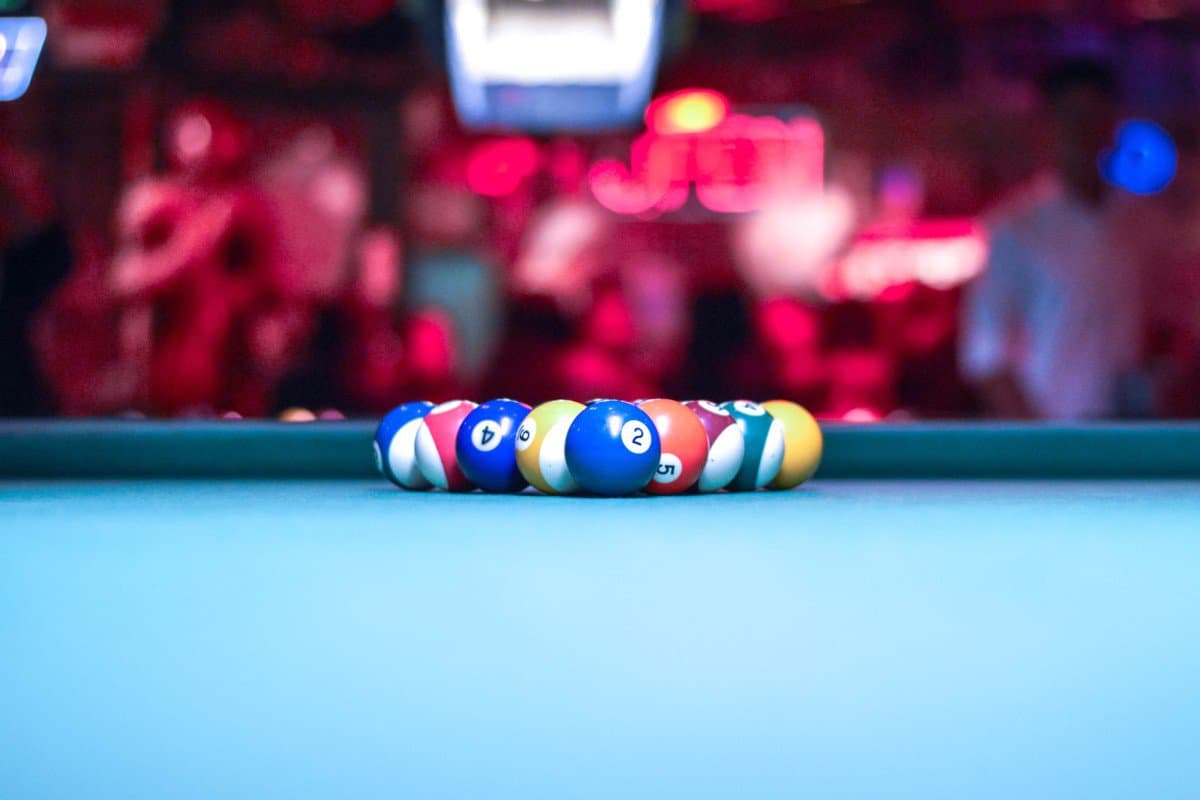The next Olympic Games will be the Summer 2024 games in Paris. Spectators will be treated to a variety of events like cycling, gymnastics, swimming and even breakdancing. But what about billiards? Why isn’t this popular, well-known game an Olympic sport?
Billiards is not in the Olympics because it has not been accepted as an event by the International Olympic Committee.
Continue reading to learn more about why billiards isn’t an Olympic sport and what could change that.
Billiards Olympic Qualification
The first step in the process of being accepted is for a sport’s international federation to petition the IOC.
The sport must be shown to comply with the IOC’s general standards, which are laid out in the Olympic Charter and the World Anti-Doping Code. From there, the decision-making process is a little more nebulous.
Billiards has already passed the first hurdle in the Olympic qualification process. Billiards is represented by an international federation, the World Confederation of Billiard Sports (WCBS).
The WCBS has lobbied the Olympic committee for acceptance several times, all unsuccessfully.
Why Billiards Is Not an Olympic Sport
By all appearances the international billiards community meets the requirements for transparency, accountability and preventing athlete drug use. So why hasn’t billiards been included yet?
The IOC has many requirements for games to qualify, which break down into five main categories:
- Historical significance
- Organizational standards
- Reputation
- Broadcast popularity
- Financial viability
Let’s take a look at each of the points for billiards below.
Many Different Versions of the Game
One of the reasons billiards is not yet an Olympic sport might be the scattered and wide-ranging nature of billiard sports.
The WCBS is an umbrella organization for several groups of billiard games. Billiard or cue sports actually encompass a variety of different games, all of which involve players hitting balls across a special table with a cue stick.
The three main games represented by the WCBS are:
- Carom billiards
- Pool
- Snooker
Each billiards game has its own objectives for winning and its own regulations on table and cue ball size. There are also different versions of each type of billiards game, like:
- 8-ball pool
- Chinese 9-ball pool
Each popular billiards game has their own tournaments and professional players. Getting even a single game accepted is hard, and the Olympics likely can’t accommodate more than a few billiard events.
So before anything is confirmed, the WCBS and IOC have to make the hard choice of deciding which of the dozens of different billiard games should be the focus.
Popularity
Another issue is popularity. The IOC looks for sports which already have a large and enthusiastic fan base spread across many different nations.
The different versions of billiards vary in popularity:
- Carom has limited appeal and is mostly played in Europe.
- Snooker is played mostly in England and India.
- Pool is the most popular, with many players coming from America and China.
This can especially be said for broadcasting billiards games. Let’s go in further detail on this below.
Pool Won’t Bring In the Viewers
Billiards is also not a very physical activity, especially in comparison to most sports.
Pool players bending around a table and aiming shots is less compelling than more physical activities like running or swimming. Although billiards games like 8-ball pool have a dedicated audience, broadcasting an Olympic billiards event will likely bring in less viewers than other sports.
Reputation
Another issue is reputation and how a sport contributes to the Olympics’ public image.
Although modern billiards events are quite professional, in the minds of many people billiards is still associated with:
- Bars
- Hustlers
- Gambling
- Smoky back rooms
It’s not an image that the Olympics want for its kid-friendly, ultra-clean public presentation.
Limited Representation In Younger Communities
Another related reputation issue is billiards’ niche appeal and lack of younger audiences.
The IOC increasingly wants to “appeal to millennials” and may overlook historical precedent for activities that hit this demographic. But billiards does not have much attention from younger audiences.
Lack of Sponsorship Opportunities
Playing billiards also doesn’t require the use of equipment other sports do.
These kinds of equipment are what usually provide tie-ins for athletic sponsors and promotion:
- Athletic shoes
- Protective gear
- Other special equipment
The lack of physicality, the probability of low viewership, the association with alcohol and the lack of opportunity for athletic sponsors all make billiards unlikely as an Olympic sport.
What Could Make Billiards an Olympic Sport?
Billiards’ lack of physicality may not be disqualifying. There are many Olympic sports that are less physical. It’s difficult, but not impossible to imagine billiards as an Olympic sport.
Pool is arguably the most popular billiards game, and it may have a better chance if the official pool organization, the World Pool-Billiard Association (WPA) applied on their own, or if the WCBS focused more on promoting pool.
Conclusion
Billiards has its work cut out for it with the IOC’s strict guidelines and focus on monetization and broad viewer appeal.
WCBS might invest more in improving billiards’ public image and establishing outreach for children and young adults or other programs to target a younger demographic.

